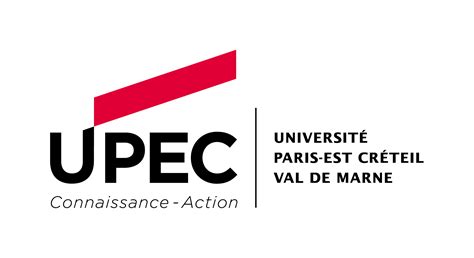Paris-Est Créteil Val de Marne University
Rethinking the Purpose of Professional Training at the University.

Professional Training Department
“We wanted to leverage legal constraints to rethink the organization and purpose of our department”
The Professional Training Department (DifPro) at UPEC had 12 members in September 2020. Its primary responsibilities included the administrative management of the university’s continuing education, validation of prior learning (VAE), and developing training programs for professionals and partners. The ‘Law for the Freedom to Choose One’s Professional Future’ presented UPEC with the opportunity to establish its own Vocational Training Center (CFA), which had to be integrated into DifPro.
How do we integrate an apprenticeship activity into a continuing education department? How do we reorganize the department considering that 13 additional staff members will be recruited this year?
Cécile Jahan, Director of the Professional Training Department:
“The announcement was very disruptive for the existing team: What will become of us? What will our work entail? I received feedback regarding concerns about team dynamics, the new hires, and the new activities we would be responsible for. There is a genuine loss of meaning in our work expressed by team members. I wanted to be guided in this process so that things could be done calmly and systematically. I wanted to intellectually integrate the CFA into our department, and for me, this involved a revamp of our service project.”
How can meaning be created around a new departmental project?
French universities, which were previously obligated to provide a public service in continuing education, are increasingly encouraged to develop complementary offerings to ensure financial autonomy. This paradigm shift directly impacts the culture and work organization of continuing education departments in universities. They must now more than ever develop new offerings and services, including apprenticeships, and establish a sales force. Therefore, the entire purpose of the work is evolving and needs to be rethought by the existing teams for the new service project to make sense to them.
Understanding the current state and future challenges to co-create a meaningful department.
A case like that of UPEC reveals a fundamental issue: involving the team in the development of the service project and the organization of the future department. To find meaning in new work directions, they must align with the realities on the ground and be understood by the people tasked with implementing them. That’s why the DifPro team participated in all stages of the support process.
My intervention with the research-action approach proceeded as follows:
Exploring together:
An assessment based on a questionnaire and a discussion group comprising team members and the director identified weaknesses in the current organization and risks associated with envisioned changes.
Enlightenment through research:
A literature review helped propose different organizational models better suited to DifPro’s objectives.
Co-creation with initiators, actors, and users:
With the team, we reflected on the advantages and disadvantages of each model. We selected the most relevant one and adapted it to the team. Additionally, individual interviews were conducted with team members to fine-tune certain aspects of the organizational chart and create prospects for evolution. Finally, we collectively redefined the department’s new identity in terms of its objectives and work values.
Measuring the impact and efficiency of the project:
Some time after the support process, a satisfaction questionnaire was sent to team members to gather their feedback on the work done and the new organization that was implemented.
Feedback:
Cécile Jahan, Director of the Professional Training Department:
“If you have a restructuring challenge for your department, driven by external constraints, you need to reset things. Reorganization can generate stress. It requires a thorough effort that involves everyone. For that, you need guidance. Elodie is the right person for that. She listens. She understands the issues and adapts quickly to the academic environment, even more so in the university setting. She grasps our field of activity and takes ownership of it. She guides teams with a lot of empathy. She gets everyone to speak, asks questions, and leads in a way that encourages everyone to express themselves. She identifies people’s postures: allies, those holding back… She also provides advice on governance. I probably sought someone with a researcher’s profile because I know how powerful it can be in the world of work. Efficient and effective.”
Why was expertise in research consulting relevant for this mission?
For this mission, the research-action approach proved to be an asset in engaging the collaborators. The data collection and analysis methods used (questionnaires, discussion groups, and interviews) allowed each person to voice their opinions and have their perspectives considered within a collective vision.